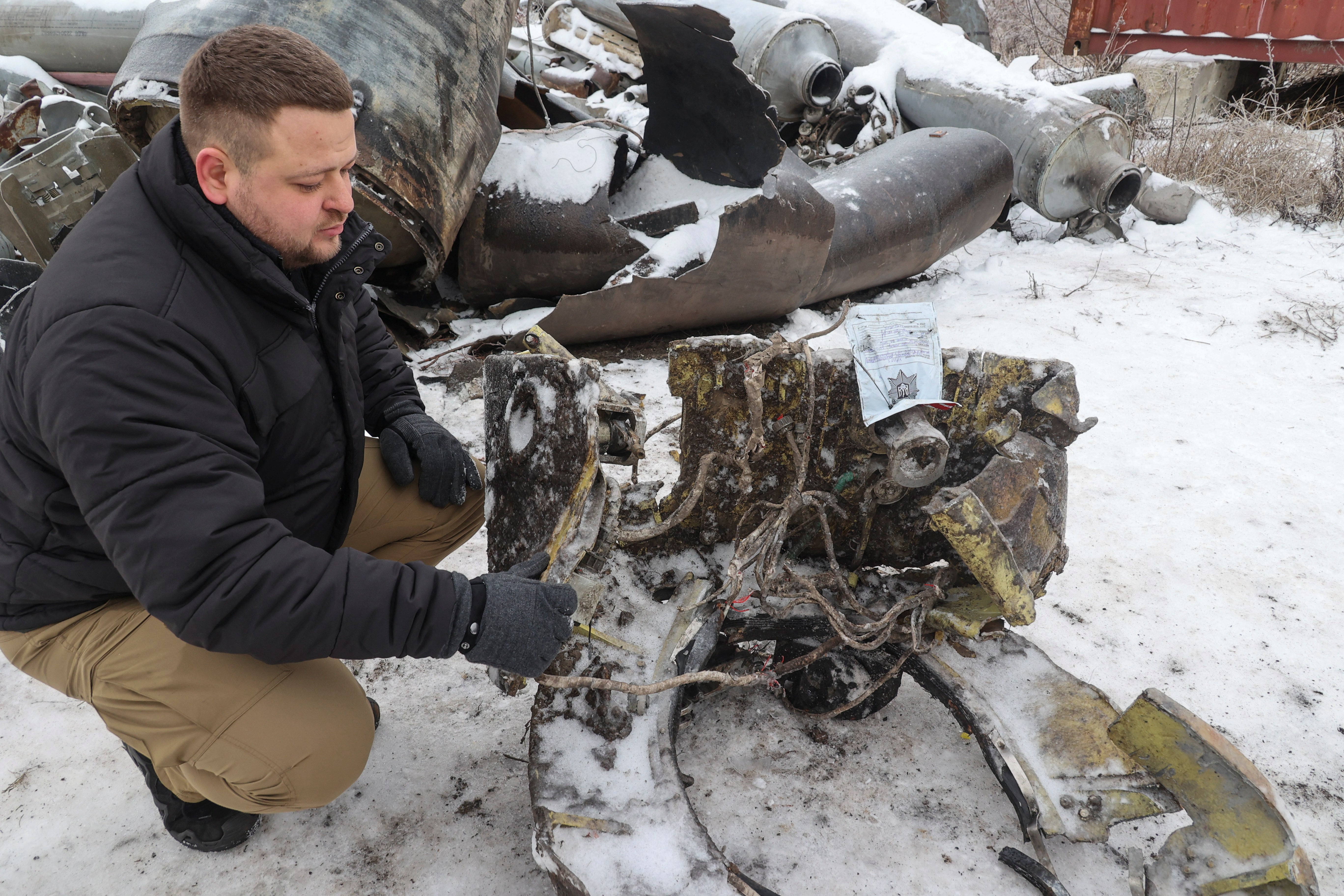Putin says Russia and North Korea ‘ready to confront ambition of West’ as he arrives for rare visit
Russian president thanks host Kim Jong-un for ’unwavering support’ to Moscow’s war in Ukraine
Vladimir Putin arrived in North Korea on Tuesday, the Kremlin said, heightening Western concerns over deepening military cooperation between Moscow and Pyongyang.
The Russian president’s ”friendly state visit” on 18-19 June is his first trip to the neighbouring country in 24 years.
Mr Putin will meet North Korean leader Kim Jong-un in Pyongyang. It will be their second meeting in less than nine months.
The two leaders are at work deepening relations between their countries, driven by their shared interest in countering the West and Russia’s need for support in the war in Ukraine.
The visit is expected to further cement the alliance.
In an article for the Rodong Sinmun newspaper ahead of the visit, Mr Putin taunted the West by thanking North Korea for its “unwavering support” to Russia’s war in Ukraine, and declared that they are “ready to confront the ambition of the collective West”.
The allies are “actively advancing their multifaceted partnership” and building “alternative trade and mutual settlement mechanisms” that are not controlled by the West, he wrote.
Mr Putin said Russia has “incessantly supported” North Korea and will continue backing it against “economic pressure, provocations, blackmailing and military threats” employed by the US against Pyongyang.
“We are also ready to closely work together to bring more democracy and stability to international relations,” he said.
Satellite images from Planet Labs and Maxar Technologies show preparations underway for a huge parade in the city’s central square, with a grandstand erected on the eastern side.
Pictures shared by the Russian media showed lifesize portraits and flags planted along the roads for Mr Putin’s welcome. The Pyongyang airport was decorated with posters saying, “Long live the unbreakable friendship and cohesion between the peoples of the two countries, Korea and Russia!”
Mr Putin will stay at the Kumsusan guesthouse, a grand state building which hosted Chinese leader Xi Jinping in 2019. He is scheduled to enjoy a concert and visit an orthodox church in the capital.
He is accompanied by defence minister Andrei Belousov, foreign minister Sergey Lavrov and deputy prime minister Alexander Novak.
Mr Putin and Mr Kim are expected to sign a strategic partnership agreement and hold a joint press conference afterwards.

Speaking about Mr Putin’s visit, the White House said the US is concerned by deepening cooperation between Moscow and Pyongyang.
"We’re not concerned about the trip," National Security Council spokesman John Kirby told reporters on Monday. "What we are concerned about is the deepening relationship between these two countries."
Ahead of the Russian leader’s visit, Mr Kim appeared to boast about increased production while visiting munitions factories last week. He showed off warehouses full of ballistic missiles.
The US and its allies have accused North Korea of supplying weapons for Russia’s war in Ukraine in return for food, fuel and foreign currency, as well as Moscow’s help with its nascent military satellite programme and space exploration.

The G7 summit in Italy last week denounced in “the strongest possible terms the increasing military cooperation” between the two nations, not least North Korea’s alleged export of ballistic missiles to Russia.
Moscow and Pyongyang have denied the accusations.
Mr Putin’s trip was confirmed during Mr Kim’s visit to Russia in his armoured train last September.
Mr Kim visited sensitive Russian space and military facilities and Mr Putin defended their “sacred struggle” against the “band of evil” in the West.
Mr Putin later gifted Mr Kim a luxurious Aurus Senat limousine, which he had shown him during their summit in September. The shipment violated a UN resolution prohibiting the supply of luxury items to North Korea, observers said.
“While there is a regularity to the heads of government of neighbouring states meeting to discuss mutual issues, shared interests and areas of conflict, the meeting between Vladimir Putin and Kim Jong-un is far from regular,” Dr Colin Alexander, a political communications expert at Nottingham Trent University, told The Independent. “Putin’s rekindling of stronger ties with North Korea reflects the Russian Federation’s squeezed diplomatic space in recent years. North Korea, on the other hand, has become adept at dealing with such marginalisation and may offer words of advice.”
He said their deepening relations would be “perceived as a sign of desperation and symbolic of a once imperial power in serious decline” and talks were likely to focus on trade and armaments.
Join our commenting forum
Join thought-provoking conversations, follow other Independent readers and see their replies
Comments
Bookmark popover
Removed from bookmarks